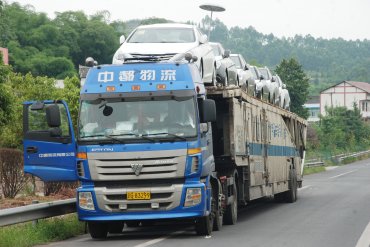SINGAPORE – A new Chinese national standard for diesel engine oil is expected to go into effect next year, leaving Chinese lubricant blenders relying on additive makers to comply, an industry insider said at a conference here this month.
The standard for D1 will most probably be passed in 2020. After the implementation of this standard, everyone has to follow the rules, said Tiger Yu, deputy general manager of supply chain for Jinzhou Kangtai Lubricant Additive Co., at the Asian Industrial Lubricants Conference on Nov. 12. The conference was jointly organized by ICIS and the European Lubricating Grease Institute.
However, it will be similar to existing standards of API, and companies will be able to get the D1 specification once it is published, he added.
Jinzhou Kangtai is a member of the Board of Directors of the China Engine Innovation Alliance, which is involved in the development of the D1 standard. It is also a member of the CP3 Alliance of China, one of the initiators of the China Low-Speed Early Combustion Test Standard and the Participating Bench Evaluation Test Unit.
The pressure is on the additive companies to help lubricant companies meet these requirements, Yu told Lube Report. I have seen many smaller lubricant companies that were in the market and have to close because of regulations.
We dont know where the government will head in the future, but we just have to work hard in our research and development to help our customers meet these requirements, he added.
Yu foresees many smaller players, or those unable to cope with technology development, leaving the market, but major local and foreign players involved in the development of the D1 standard will be at the forefront.
There were about 40 to 50 lubricant additive manufacturers and more than 100 traders in China in 2018. Production volumes of foreign additive companies totaled approximately 250,000 metric tons per year to 300,000 t/y while local additive companies supplied around 100,000 to 120,000 t/y. Most of the latter volume came from five companies: Petrochina, Sinopec, Kangtai, Richful and Wuxi. A group of secondary domestic companies supplies 40,000 to 60,000 t/y of additive components such as corrosion inhibitors, extreme pressure additives and foam inhibitors.
Among the five major Chinese additive manufacturers in 2018, Petrochina and Sinopec each have capacity to make 60,000 t/y, Kangtai 100,000 t/y, Wuxi 50,000 t/y and Richful 100,000 metric tons.
Kangtai has three plants and subsidiaries in Beijing and Shanghai. The company produces additive packages and components, including corrosion inhibitors, polyisobutylene succinimide and ashless dispersants, and exports to Europe, the United States and Asia.

Photo: Hupeng/Dreamstime